▼ New Industrial Policy on the anvil [08-30-17]
The Department of Industrial Policy and Promotion, Ministry of Commerce and Industry initiated the process of formulation of a new Industrial Policy in May 2017.
Since the last Industrial Policy announced in 1991, India has transformed into one of the fastest growing economies in the world.
With strong macro-economic fundamentals and several path breaking reforms in the last three years, India is equipped to deploy a different set of ideas and strategies to build a globally competitive Indian industry.
The new Industrial Policy will subsume the National Manufacturing Policy.
A consultative approach has been taken for industrial policy formulation wherein six thematic focus groups and an online survey on DIPP website have been used to obtain inputs.
Focus groups, with members from government departments, industry associations, academia, and think tanks have been setup to delve deep into challenges faced by the industry in specific areas.
The six thematic areas include Manufacturing and MSME; Technology and Innovation; Ease of Doing Business; Infrastructure, Investment, Trade and Fiscal policy; and Skills and employability for the future.
A Task Force on Artificial Intelligence for India’s Economic Transformation has also been constituted which will provide inputs for the policy.
It is proposed that the new Industrial Policy will aim at making India a manufacturing hub by promoting ‘Make in India’.
|
▼ YUVA: New Skill Development Program [08-30-17]
 The Union Home Minister Shri Rajnath Singh inaugurated the YUVA - a skill development programme and an initiative by Delhi Police under Pradhan Mantri Kaushal Vikas Yojana. The Union Home Minister Shri Rajnath Singh inaugurated the YUVA - a skill development programme and an initiative by Delhi Police under Pradhan Mantri Kaushal Vikas Yojana.
The ‘YUVA’ initiative by Delhi Police aims to connect with youth by upgrading their skill as per their competencies.
It will help them to get a gainful employment under Pradhan Mantri Kaushal Vikas Yojna under the Ministry of Skill Development.
Delhi Police has tied up with National Skill Development Corporation (NSDC) and Confederation of Indian Industry (CII) for providing mass job linked skill training for the selected youth.
National Skill Development Corporation shall be providing skill training to the youth under ‘Pradhan Mantri Kaushal Vikas Yojna’ (PMKVY) and CII will provide job linked training through its Sector Skill Councils who are connected to industry and thereby provide job guarantee.
A detailed exercise was conducted in all 13 districts of Delhi Police to select the youth in the age of 17 - 25 years for this training belonging to categories such as School dropouts, Juvenile offenders, Victims of crimes and families in dire states.
So far, 2,269 candidates have been selected to be trained by 36 training partners in 45 skills in the next three months.
|
▼ Deep Ocean Mission launched by MoES [08-30-17]
 The Union Ministry of Earth Sciences (MoES) is all set to launch ‘Deep Ocean Mission’ by January 2018, which is expected to improve India’s position in ocean research field. The Union Ministry of Earth Sciences (MoES) is all set to launch ‘Deep Ocean Mission’ by January 2018, which is expected to improve India’s position in ocean research field.
The program on poly metallic nodules was initiated at CSIR-NIO with the collection of the first nodule sample from Arabian Sea on board the first research vessel Gaveshani on January 26,1981.
India was the first country in the world to have been given the pioneer area for exploration of deep-sea mineral, namely, polymetallic nodules in the Central Indian Ocean Basin in 1987.
Based on the resource evaluation, India has now retained an area of 75,000 sq km with an estimated resource of about 100 million tons of strategic metals such copper, nickel, cobalt besides manganese and iron.
A FGM (First Generation Mine-site) with an area of 18,000 sq km has been identified. Latest technologies for extraction of metals from the minerals have also been developed.
Besides identifying the mineral resource and developing technologies for mining and extraction, the programme has also resulted in high impact research as well as manpower development.
Detailed environmental data has been collected for compliance with International Seabed Authorities requirements.
This is required as the mining activity on large scale should not adversely affect the coast of other countries in the neighbourhood.
|
▼ Defence Ministry launches advanced facility at BEL [08-28-17]
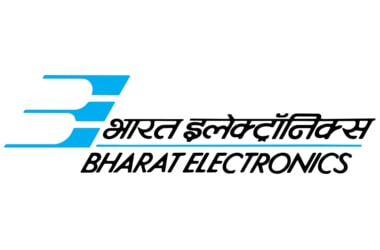 Defence Minister Shri Arun Jaitley, inaugurated an Academy for Excellence and two state-of-the-art testing facilities - EMC Test facility and Near Field Antenna Test Range at the Bengaluru Unit of Navratna Defence PSU Bharat Electronics Limited (BEL). Defence Minister Shri Arun Jaitley, inaugurated an Academy for Excellence and two state-of-the-art testing facilities - EMC Test facility and Near Field Antenna Test Range at the Bengaluru Unit of Navratna Defence PSU Bharat Electronics Limited (BEL).
Secretary (Defence Production) Shri Ashok Kumar Gupta Chairman & Managing Director, BEL Shri Gowtama MV and other senior officers of BEL were present.
The BEL Academy for Excellence with sprawling complex spread over six acres is built at a cost of Rs. 47 crore.
This Academy of Excellence is envisaged to address the training needs of not only BEL employees, but also its customers and vendors/partners, especially MSMEs/SMEs.
This institution, which will be affiliated to national/international universities, will also cater to the skill development initiatives of the Central Government.
The training programmes have been structured around three core areas: Quality, Technology, and Leadership, with various programs designed with the help of experts from major institutes like IITs, IIMs, IISC, IETE, ISI, ASQ etc.
The NABL accredited EMC test facility is set up at BEL-Bengaluru at a cost of Rs. 60 crore.
This EMC facility is the first of its kind in India having Anechoic Chamber of size 11m x 21m x 30m and can conduct testing of Systems/Platforms weighing up to 70 Tonnes.
It can be used to conduct system level Electro Magnetic Compatibility (EMC) tests for strategic Defence systems like Battle Tanks, Communication vehicles, Radar systems and Airborne systems including Nuclear Electro Magnetic Pulse (NEMP) and High Altitude Electro Magnetic Pulse (HEMP) testing.
It can be used to carry out system level EMC testing for many projects of national importance like AKASH, IACCS, LRSAM, Weapon Locating Radar and Battlefield Management System.
The facility will also be open for use to other Indian Defence companies, including MSMEs.
NFTR: Know More
- Near Field Antenna Test Range (NFTR) is a critical infrastructure for calibration and testing of Radars and communication antennas.
- The NFTR facility at Bengaluru is the third such in BEL and the only one in the Defence industry in India.
- This facility, set up at a cost of Rs. 30 crore will help to calibrate and test next generation Radars with AESA (Active Electronically Steerable Array) based Antenna arrays as well as Antennas for major projects such as QRSAM, MRSAM and LRSAM.
|
▼ AI for development of commerce and industry [08-28-17]
 Commerce and Industry Minister Nirmala Sitharaman has constituted a Task Force chaired by V. Kamakoti of IIT Madras to explore possibilities to leverage Artificial Intelligence (AI). Commerce and Industry Minister Nirmala Sitharaman has constituted a Task Force chaired by V. Kamakoti of IIT Madras to explore possibilities to leverage Artificial Intelligence (AI).
This is for development across various fields.
The ‘task force on AI for India’s Economic Transformation’ will submit concrete and implementable recommendations for government, industry and research institutions.
In addition to regular members, it will have official participation from NITI Aayog, Ministry of Electronics and Information Technology, Department of Science & Technology, UIDAI and DRDO.
The panel comprises experts, academics, researchers and industry leaders.
The Minister said with rapid development in the fields of information technology and hardware, the world is about to witness a fourth industrial revolution.
Driven by the power of big data, high computing capacity, artificial intelligence and analytics, Industry 4.0 aims to digitize the manufacturing sector.
The move comes in the backdrop of the government reviewing the manufacturing and industrial policies.
|
▼ Sub categorisation of OBCs on the anvil, committee approved [08-24-17]
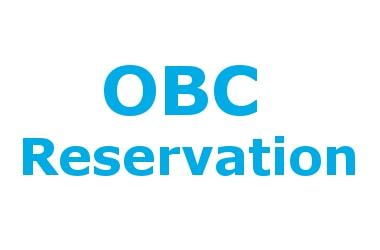 The Union Cabinet chaired by Prime Minister Shri Narendra Modi approved a proposal for setting up of a Commission under article 340 of the Constitution. The Union Cabinet chaired by Prime Minister Shri Narendra Modi approved a proposal for setting up of a Commission under article 340 of the Constitution.
This is to examine the issue of sub-categorization of the Other Backward Classes (OBCs).
The Commission shall submit its report within 12 weeks from the date of appointment of the Chairperson of the Commission.
The Commission shall be known as the Commission to examine the sub-categorization of Other Backward Classes.
The proposed terms of references of the Commission are as follows:
(i) To examine the extent of inequitable distribution of benefits of reservation among the castes/ communities included in the broad category of OBCs, with reference to the OBCs included in the Central list.
(ii) To work out the mechanism, criteria, norms and parameters, in a scientific approach, for sub-categorization within such OBCs, and,
(iii) To take up the exercise of identifying the respective castes/communities/ sub-castes/ synonyms in the Central List of OBCs and classifying them into their respective sub-categories.
The Supreme Court in its order dated 16.11.1992 in WP(C) No. 930/1990 (Indra Sawhney and others vs. Union of India) observed that there is no Constitutional or legal bar to a State categorizing backward classes as backward or more backward.
It had further observed that if a State chooses to do it (sub-categorization), it is not impermissible in law.
Nine States of the country viz., Andhra Pradesh, Telangana, Puducherry, Karnataka, Haryana, Jharkhand, West Bengal, Bihar, Maharashtra and Tamil Nadu have already carried out sub-categorization of Other Backward Classes.
|
▼ CCEA approves proposal to close BWEL [08-24-17]
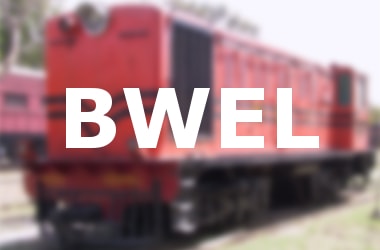 The Cabinet Committee on Economic Affair has approved the proposal of Ministry of Railways to close the Bharat Wagon and Engineering Company Limited (BWEL). The Cabinet Committee on Economic Affair has approved the proposal of Ministry of Railways to close the Bharat Wagon and Engineering Company Limited (BWEL).
This is a Central Public Sector Enterprise (CPSE) under Ministry of Railways.
626 employees of BWEL will be benefitted from the voluntary retirement scheme to be offered at 2007 pay scale.
The Government will have to provide one time grant off 151.18 crore towards severance package and for clearing the current liabilities of the company.
This measure will stop flow of financial support from public funds for carrying on the operations of sick/loss making BWEL resulting in savings for the Government.
The implementation will be done as per the timelines prescribed in the guidelines issued by Department of Public Enterprises (DPE) on time bound closure of sick/loss making CPSEs.
Background:
- BWEL was incorporated on 4th Dec' 1978 as a CPSE after taking over two sick private sector companies - Arthur Butler & Company, Muzaffarpur and Britannia Engineering Company, Mokama. The Company was referred to BIFR (Board for Industrial and Financial Reconstruction) in December, 2000 and was declared sick in the year 2002.
- The Company continues to be a sick Company since then. The administrative control of the company was transferred from Department of Heavy Industry (DHI) to the MoR in August, 2008.
- The company is engaged in the manufacture and repair of wagons, and is having two manufacturing units, at Mokama and Muzaffarpur in Bihar.
|
▼ CCEA renames CSS scheme SAMPADA [08-24-17]
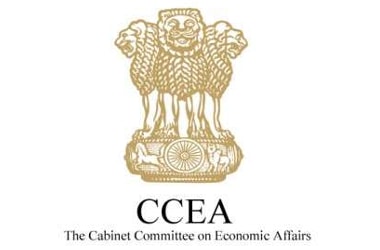 The Cabinet Committee on Economic Affairs, chaired by the Prime Minister Shri Narendra Modi, has approved the renaming of the new Central Sector Scheme-SAMPADA (Scheme for Agro-Marine Processing and Development of Agro-Processing Clusters). The Cabinet Committee on Economic Affairs, chaired by the Prime Minister Shri Narendra Modi, has approved the renaming of the new Central Sector Scheme-SAMPADA (Scheme for Agro-Marine Processing and Development of Agro-Processing Clusters).
The new name is “Pradhan Mantri Kisan Sampada Yojana (PMKSY) ” for the period of 2016-20 coterminous with the 14th Finance Commission cycle.
Earlier, CCEA in its meeting held in May, 2017 approved the new Central Sector Scheme-SAMPADA (Scheme for Agro-Marine Processing and Development of Agro-Processing Clusters) with same allocation and period .
Objective:
The objective of PMKSY is to supplement agriculture, modernize processing and decrease Agri-Waste.
Financial Allocation:
PMKSY with an allocation of Rs. 6,000 crore is expected to leverage investment of INR 31,400 crore, handling of 334 lakh MT agro-produce valuing INR 1,04,125 crore.
This will benefit 20 lakh farmers and generate 5,30,500 direct/ indirect employment in the country by the year 2019-20.
Impact:
- The implementation of PMKSY will result in creation of modern infrastructure with efficient supply chain management from farm gate to retail outlet.
- It will provide a big boost to the growth of food processing sector in the country.
- It will help in providing better prices to farmers and is a big step towards doubling of farmers’ income.
- It will create huge employment opportunities especially in the rural areas.
- It will also help in reducing wastage of agricultural produce, increasing the processing level, availability of safe and convenient processed foods at affordable price to consumers and enhancing the export of the processed foods.
Measures to give a boost to Food Processing Sector:Food Processing Sector has emerged as an important segment of the Indian economy in terms of its contribution to GDP, employment and investment. During 2015-16, the sector constituted as much as 9.1 and 8.6 per cent of GVA in Manufacturing and Agriculture sector respectively. The manifesto of NDA Government stresses upon incentivising the setting up of food processing industry for providing better income for the farmers and creating jobs. (a) To provide impetus to investment in food processing and retail sector, govt. has allowed 100% FDI in trading including through e-commerce, in respect of food products manufactured and / or produced in India. This will benefit farmers immensely and will create back-end infrastructure and significant employment opportunities. (b) The govt. has also set up a Special Fund of Rs. 2000 crore in NABARD to make available affordable credit at concessional rate of interest to designated food parks and agro processing units in the designated food parks. (c) Food and agro-based processing units and cold chain infrastructure have been brought under the ambit of Priority Sector Lending (PSL) to provide additional credit for food processing activities and infrastructure. This is boosting food processing, reducing wastage, create employment and increasing farmers’ income. Background:- PMKSY is an umbrella scheme incorporating ongoing schemes of the Ministry like Mega Food Parks, Integrated Cold Chain and Value Addition Infrastructure, Food Safety and Quality Assurance Infrastructure, etc.
- Additionally new schemes like Infrastructure for Agro-processing Clusters, Creation of Backward and Forward Linkages, Creation / Expansion of Food Processing & Preservation Capacities were in place.
|
▼ India and Nepal anti-narcotics MoU approved by Cabinet [08-24-17]
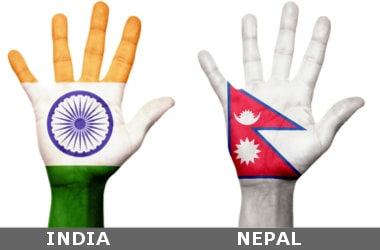 The Union Cabinet approved signing of a Memorandum of Understanding (MoU) between India and Nepal on Drug Demand Reduction and Prevention of Illicit Trafficking in Narcotic Drugs and Psychotropic Substances and precursor chemicals and related matters. The Union Cabinet approved signing of a Memorandum of Understanding (MoU) between India and Nepal on Drug Demand Reduction and Prevention of Illicit Trafficking in Narcotic Drugs and Psychotropic Substances and precursor chemicals and related matters.
The MoU lists out the areas of cooperation on drug matters between the two countries.
It also indicates the mechanism of information exchange and the competent authorities in the two countries.
These authorities are responsible for the implementation of the MoU and exchange of any information.
Cooperation on drug matters is expected to curb the illicit traffic of narcotic drugs, psychotropic substances and precursor chemicals in the two countries.
The MoU provides that the Parties shall endeavour to:
(i) Develop mutual cooperation with a view to effectively resolving the issue of illicit traffic in narcotic drugs, psychotropic substances and their precursors.
The countries will also cooperate in drug demand reduction through prevention, awareness, education and community based programmes, treatment and rehabilitation.
(ii) Exchange information of operational, technical and general nature in drug matters, exchange literature on their existing laws, rules, procedures, best practices and methods of curbing illicit trafficking in narcotic drugs, psychotropic substances and their precursors and any further amendments to the existing legislation.
Background:
- India has always supported global efforts to counter drug trafficking and is party to several multilateral and bilateral initiatives in this regard as also United Nations (UN) led initiatives.
- In accordance with the spirit of UN Conventions on Narcotic Drugs, effort is made to enter into Bilateral Agreements/MoUs with neighbouring countries and the countries which have a direct bearing on the drug situation prevailing in our country.
- Such Bilateral Agreements/ MoUs have already been executed with various countries.
- The proposed MoU with Nepal is another such MoU which shall be entered for the purpose of bilateral cooperation on drug matters.
|
▼ Swasth Bachche Swasth Bharat launched [08-22-17]
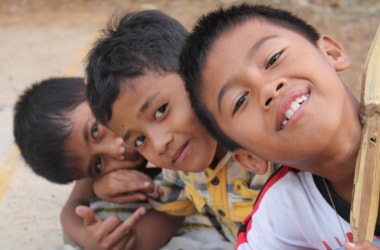 ‘Swasth Bachche, Swasth Bharat’ Programme is an initiative of Kendriya Vidyalaya Sangathan. ‘Swasth Bachche, Swasth Bharat’ Programme is an initiative of Kendriya Vidyalaya Sangathan.
It is to prepare a physical Health and Fitness Profile Card for more than 12 lakhs of Kendriya Vidyalaya students.
It was launched in Kochi.
Union Minister for Human Resource Development Shri. Prakash Javadekar unveiled the Profile Card.
Strengthening the education sector of the country through the empowerment of general education is the aim of Modi Government.
Ensuring quality education for all is also the aim of Government. Kendriya Vidyalayas in Kerala shows more quality than the Kendriya Vidyalayas of all other states.
A system to involve children, a part of household chores is needed.
Swasth Bachche, Swasth Bharat exhibition and the display of Yoga by children were also held.
About the Scheme
- Swasth Bachche, Swasth Bharat programme will provide a comprehensive and inclusive report card.
- It is for children covering all age groups and children of different abilities.
- Making students, teachers and parents aware about the importance of good health and fitness and encouraging 60 minutes of play each day is an objective of the programme.
- Swasth Bachche, Swasth Bharat programme also intends to imbibe values of Olympics and Paralympics amongst students.
- Bring back the childhood amongst children and make physical activity and recreational games an integral part of learning process.
- Motivating potentially outstanding performers in various games and sports of excellence are on the anvil.
- The scheme is also using technology for data capture and analytics, and giving access to schools, parents and teachers are also the objectives of the programmes.
|
▼ CM Fadnavis launches Namo Yuva Rojgar Yojana, farmer's market on wheels [08-16-17]
 Chief Minister Devendra Fadnavis has launched Namo Yuva Rojgar Kendra, a farmers’ market on wheels, which aims at delivering farm-fresh organic produce at reasonable prices. Chief Minister Devendra Fadnavis has launched Namo Yuva Rojgar Kendra, a farmers’ market on wheels, which aims at delivering farm-fresh organic produce at reasonable prices.
A total of 125 farm-to-home delivery vans will tour the city to sell the produce. So far, 10 vehicles with fresh farm produce have been rolled out in the city.
The remaining 115 vehicles to be launched within a month. The vegetables sold in the mobile vans will be priced 25% lower than the average market rate.
The initiative aims to generate jobs for uneducated youth and women.
Officials said 125 Tata and Mahindra vehicles were being equipped to carry 1 tonne of vegetables and fruits.
The State government plans to launch 500 such vehicles all over Maharashtra.
Information about the timings of farmers’ market on wheels service, assortment of farm produce and their prices would be made available through a specially-designed app, athavdibazar, which will be available on Google Play Store.
Farmers never got a good price for their produce as there was no direct contact between farmers and consumers.
Namo Yuva Rojgar Kendra is the brainchild of Prasad Lad, president of Mi Mumbai Abhiyan-Abhiman and Shri Swami Samarth Shetkari Utpadak.
Mr. Lad said the initiative will be different from the now defunct Maharashtra Agro and Fruit Processing Corporation (MAFCO).
The drive will involve farmers directly and not through the market committees. Farmers no longer will have to share their profit with middlemen.
The Chief Minister said farmers needed more space to store vegetables and fruits.
MAFCO and Namo Yuva Rojgar Yojana: Know More
- The now defunct MAFCO will be revived. The Mi Mumbai Abhiyan - Abhiman and MAFCO are likely to sign a Memorandum of Understanding.
- MAFCO already has the infrastructure that is needed. This partnership will create jobs and bring benefits for farmers and consumers.
- Backed by the State government, the Namo Yuva Rojgar Kendra aims to provide job opportunities to unemployed youth in Mumbai.
- Under the programme, various schemes will be initiated, including farmers’ weekly market, farmers’ mobile market and mother’s tiffin service.
|
▼ Ministry of Railways celebrates Swachhta Pakhwada [08-16-17]
Ministry of Railways is observing ‘Swachhta Pakhwada’ across its entire network from August 16TH to 31ST August 2017.
This period was allotted to Ministry of Railways by the Nodal Ministry for ‘Swachh Bharat Abhiyan’ namely ‘Union Ministry of Drinking Water and Sanitation’.
The ‘Pakhwada’ has been named as “Rail Swachhta Pakhwada”.
Each date of the ‘Pakhwada’ has been associated with a particular theme pertaining to cleanliness. The detailed theme-wise schedule is given below. - 16/08/2017: Swachh Awareness: The day should be started by administering Swachhta pledge to Railway staff and safai karamacharis. On this day Parbhat Pheris should be taken out in the morning with the slogan “Swachh Rail Swachh Bharat” with a view to raise awareness of all railway employees and their families to ensure cleanliness in the vicinity of their habitat.
- 17/08/2017: Swachh Samwad (Cleanliness dialogue/Public): All DRMs should organize seminars on Sanitation and upkeep of railway stations by involving NGOs, Charitable institutions, Scouts & Guides, Unions and all employees to undertake cleanliness drive on their nearest railway stations.
- 18/08/2017: Swachh Samwad (Cleanliness dialogue/In-house): Seminars and Workshops should be organized on Sanitation and upkeep of Railway Colonies and other Institutions on Railway premises.
- 19/08/2017: Swachh Stations (Clean Stations): Intensive Cleanliness drive at all A1 and A category stations should be undertaken. Availability and working of cleaning machines, tools & plants, protective gears for cleaning staff must be ensured.
- 20/08/2017: Swachh Stations (Clean Stations): This day should be dedicated to intensive cleaning of all stations other than A1 and A category. Segregation of waste should be encouraged by setting up of separate dustbins.
- 21/08/2017: Swachh Railgaadi (Clean Train): Intensive inspection/cleaning of listed trains should be undertaken by teams of officers and staff to ensure cleanliness onboard.
- 22/08/2017: Swachh Railgaadi (Clean Train): Intensive inspection/cleaning of all other trains not covered in drive dated 21/08/17 should be undertaken on this day.
- 23/08/2017: Swachh Parisar (Clean Work Place): Intensive drive should be undertaken to clean up and improve offices including Hospitals, Schools, Coaching Depots and Lobbys. Required amenities in the circulating areas of station complexes be ensured and unauthorized encroachments removed. Cleaning of all drains to be undertaken.
- 24/08/2017: Swachh Parisar: (Clean Residential Premises) Residential Premises including Railway Colony, Retiring/Waiting Rooms, Rest Houses and Dormitories, Running Rooms etc., should be taken up for intensive cleaning on this day.
- 25/08/2017: Swachh Ahar: On this day intensive cleaning of all canteens should be taken up.
- 26/08/2017: Swachh Ahar: In continuation to station vending units, on this day intensive cleaning of all pantry cars in trains should be taken up.
- 27/08/2017: Swachh Neer (Clean Water): Intensive inspection of all water installations including filter plants, sources of water supply, water taps for drinking water at stations as well as trains shall be undertaken.
- 28/08/2017: Swachh Neer (Clean Water): Intensive inspection of all water installations in offices, Railway Colonies/Hospitals/Health Units/Schools should be taken up on this day.
- 29/08/2017: Swachh Prasadhan: The day should be dedicated to intensive cleaning of all toilet blocks at railway stations, coaching depots, trains and surrounding areas.
- 30/08/2017: Swachh Competition: A sense of healthy competition for cleaning should be inculcated and commendation be given to those units which are found perennially/regularly cleaned. Supervisors/staff working on cleaning activities should be suitably recognized.
- 31/08/2017: Review/Briefing: On this day, the work carried out during the Pakhwada should be reviewed and a detailed report with photos and videos should be uploaded on the website of each Railway. Due coverage of the drive should be ensured in social/print/electronic media.
As part of the Clean Energy drive, equipments fitted with Solar Energy will be made fully functional during this period. Proposals for solar energy fitments will be expedited. Special emphasis will be given to A1 and A category Stations for cleanliness in passenger and non-passenger areas including the approach to the stations. Suitable Senior Officers will be nominated to monitor the campaign at different levels. It is also proposed to do monitoring of cleanliness through CCTV wherever installed. Some 200 Trains have also been identified for special attention regarding cleanliness during this fortnight.
|
▼ Sankalp Se Siddhi launched as part of new India movement [08-14-17]
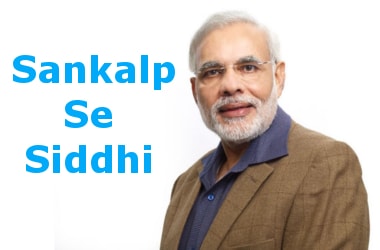 To take forward the initiative of Prime Minister Shri Narendra Modi for a New India movement from 2017 - 2022, a Sankalp Se Siddhi (Attainment through Resolve) Programme was organized at Coimbatore on 12 August, 2017. To take forward the initiative of Prime Minister Shri Narendra Modi for a New India movement from 2017 - 2022, a Sankalp Se Siddhi (Attainment through Resolve) Programme was organized at Coimbatore on 12 August, 2017.
The New India Movement 2017-2022 envisages an India free of Poverty, Corruption, Terrorism, Communalism, Casteism and Un-cleanliness.
Union Minister drew the attention of the audience to the urgent need to reform and transform India, through a common resolve for positive transformation.
The participants took the New India Pledge of “Come, let us together pledge for building a New India by 2022, a Clean India, a Poverty-free India, a Corruption-free India, a Terrorism-free India, a Communalism-free India, and a Casteism-free India”.
The pledge-taking ceremony was followed by performances of Thudumbattam, Thiruvathirakali and Bharathanatyam by the artists of South Zonal Cultural Center (SZCC), Tanjavur.
|
▼ AGEY : Aajevika Grameen Express Yojana launched [08-11-17]
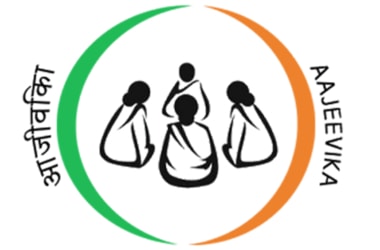 The Government of India has decided to launch a new sub-scheme named “Aajeevika Grameen Express Yojana (AGEY)” as part of the Deendayal Antyodaya Yojana - National Rural Livelihoods Mission (DAY-NRLM). The Government of India has decided to launch a new sub-scheme named “Aajeevika Grameen Express Yojana (AGEY)” as part of the Deendayal Antyodaya Yojana - National Rural Livelihoods Mission (DAY-NRLM).
The Self Help Groups under DAY-NRLM will operate road transport service in backward areas.
This will help to provide safe, affordable and community monitored rural transport services to connect remote villages with key services and amenities (such as access to markets, education and health) for the overall economic development of backward rural areas.
This will also provide an additional avenue of livelihood for SHGs.
The Community Investment Fund (CIF) provided to Community Based Organization (CBOs) under DAY-NRLM will be utilized to support the SHG members in this new livelihoods initiative.
The beneficiary SHG member will be provided an interest free loan by the CBO from its Community Investment Fund up to INR 6.50 lakh for purchase of the vehicle.
Alternative, CBO will own the vehicle and lease it to an SHG member to operate the vehicle and pay lease rental to the CBO
AGEY will be initially implemented in 250 Blocks in the country on pilot basis with each Block provided upto 6 vehicles to operate the transport services.
During the current year implementation of the scheme has been so far approved for 52 Blocks in 8 States namely Andhra Pradesh, Jharkhand, Maharashtra, Tamil Nadu, Telangana, Uttarakhand and West Bengal.
It is with a total provision of INR 16.06 Crore of which the Government of India share would be INR 10.16 Crore. The balance funding would be provided by the respective States.
The Blocks will be selected by States from among the Blocks where NRLM is being implemented intensively and where mature CBOs are already functioning.
Backwardness, lack of transportation links and sustainability of service would be the guiding factors in the selection of Blocks and routes.
The State Rural Livelihood Missions (SRLMs) will do a feasibility study and traffic survey in the selected blocks to identity the routes and the number and capacity of vehicles which can be operated on sustainable basis.
The study will be conducted by technically sound organizations with expertise in transport network planning.
The choice of vehicle could be either e-riksha, 3 wheeler or 4 wheeler within a cost ceiling of INR 6.50 lakh.
The SRLMs will be co-ordinating with State Transport Department for issue of permit for the vehicle.
The SHG member operating the vehicle shall ensure that all necessary legal and statutory requirement such as valid permit, road tax permit, valid insurance policy etc. are met.
The SHG member shall run the vehicle on approved routes at pre-determined frequency as jointly agreed between the CBO and the SHG operator based on financial viability and the need for transport link.
All vehicles under the scheme shall have a defined colour code and carry AGEY branding to ensure their identity and avoid diversion to other routes.
The State Rural Livelihood Mission will arrange capacity building for their staff at State, District and Block levels for operating the Scheme.
The members of the CBO and the beneficiary SHG member shall also be provided adequate training in the Rural Self Employment Training Institutes (RSETIs) and other partner organizations.
|
▼ Namami Gange Jagriti Yatra flagged off [08-11-17]
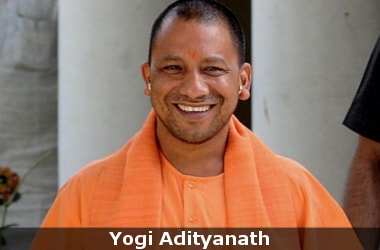 This yatra was flagged off by CM Yogi Adityanath on 9th Aug, 2017. This yatra was flagged off by CM Yogi Adityanath on 9th Aug, 2017.
The Chief Minister said that Prime Minister Narendra Modi has taken up cudgels to clean these rivers.
The Modi government has sanctioned INR 20,000 crore to keep Ganga clean from Gangotri to Ganga Sagar and even set up a new ministry to monitor the project.
As this is not a Central Government project only, the state government too has chipped in with its efforts to keep Ganga and Yamuna clean.
The UP government has gone for a major plantation drive on the 150 kms banks of Ganga on July 5 in which over 1.30 lakh trees were planted.
Over 1600 villages spread in 25 districts have been declared ‘Open Defecation Free’.
Besides, efforts have begun to make Ganga clean during the coming ‘Ardh Kumbh Mela’ at Allahabad in 2019
The Yatra will pass through 108 blocks of 25 districts of UP from Bijnore to Ballia along Ganga covering around 1,025 kilometers and make people aware about cleanliness of the river. The yatra will end in Lucknow on September 6.
|
▼ Bill to enable exit of RBI from NABARD passed [08-4-17]
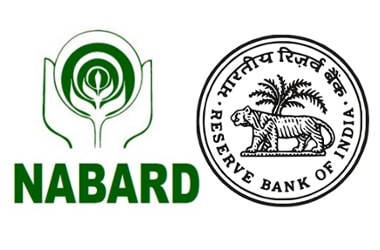 A bill to enable exit of RBI from Nabard and increase authorised capital of the development institution six times to INR 30,000 crore was passed by the Lok Sabha on 3rd Aug, 2017. A bill to enable exit of RBI from Nabard and increase authorised capital of the development institution six times to INR 30,000 crore was passed by the Lok Sabha on 3rd Aug, 2017.
The National Bank for Agriculture and Rural Development (Amendment) Bill, 2017 also seeks to amend certain clauses in the light of reference of the Micro, Small and Medium Enterprises (MSMEs) Development Act, 2006 in the proposed legislation.
Minister of State for Finance Santosh Kumar Gangwar indicated this law is one of the “major step” towards doubling farmers’ income by 2022.
This is a small bill but irrespective of that, 28 members put their views on this legislation, which reflects the interest of members’s on agriculture related issues.
As this is a short bill, suggestions made by members would be considered when the detail bill will come.
This law would benefit farmers.
On concerns being raised on including MSMEs in place of SSIs (small scale industries), he said Nabard would always support agriculture and not corporates.
Earlier while moving the bill for consideration and passage, the ruling party representative said of The NABARD (Amendment) Bill, 2017 said National Bank for Agriculture and Rural Development (NABARD) is a premier organisation which was established in 1982.
It provides loans for agriculture, small scale industries among others.
In the last three decades, there has been diversification in the functioning of Nabard and in the last three years, after the BJP government came to power, the bank has underwent a lot of changes.
There has been changes in its priority and policies in the area of agriculture and rural development.
Now Nabard is refinancing and providing direct loan in the agriculture and rural areas, he added.
The balance sheet of Nabard has increased from INR 1.82 lakh crore in March 31, 2012 to INR 3.10 lakh crore in March 31, 2016, he said adding that means, there has been an increase of around 70 percent in the activities of Nabard.
Nabard plays an important role for doubling the income of farmers and increasing the infrastructure in the rural areas.
At present the authorised capital of Nabard is INR 5,000 crore and there is a proposal to increase it to INR 30,000 crore, Gangwar said.
According to the need, the government can increase the authorised capital from time to time.
If there is a need to increase this authorised capital above INR 30,000 crore, then after discussions with RBI it can be increased.
There is another suggestion that at present in Nabard, the centre has a share of 99.6 percent and the RBI has the remaining share, adding a conflict in the role of the RBI.
As RBI is also a regulator, its 0.4 percent equity will be transferred to Centre, as a result, 100 percent equity will come to the Centre.
Another suggestion was that NABARD can have an authentic data bank on rural credit.
Agriculture credit is a major issue and that disbursement is dominated by private banks in certain states.
Another suggestion was functioning of Regional Rural Banks (RRBs) should be looked into and the government could look at appointing an RBI Deputy Governor as chairman of the NABARD.
Three members from the Lok Sabha and two from the Rajya Sabha should be appointed to the NABARD board for a period of two years, according to another suggestion.
|
▼ Banking Regulation Bill 2017 to replace NPA Ordinance 2017 passed [08-4-17]
The Banking Regulation (Amendment) Bill 2017 was passed by the lower house of the parliament on Aug 3, 2016.
It will replace the Non-Performing Assets Ordinance, which came into effect earlier this year.
Finance Minister Arun Jaitley had introduced a bill in Lok Sabha to amend the Banking Regulation Act 1949.
The measure allows the RBI to initiate insolvency resolution process on specific stressed-assets.
The RBI would also be empowered to issue other directions for resolution, appoint or approve for appointment, authorities or committees to advise the banking companies for stressed-asset resolution.
The non-performing assets of banks have increased to more than INR 9 lakh crore and now RBI is empowered to refer the cases to Insolvency and Bankruptcy Board.
In June, RBI had identified 12 large loan defaulters who account for 25% of the total bad loans in the Indian banking system.
|
▼ e-RaKAM - Online portal for selling agricultural produce [08-3-17]
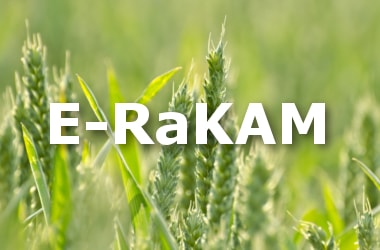 The government on Aug 1, 2017 launched a portal, e-RaKAM, to provide a platform to sell agricultural produce. The government on Aug 1, 2017 launched a portal, e-RaKAM, to provide a platform to sell agricultural produce.
The portal is a joint initiative by state-run-auctioneer MSTC and Central Warehousing Corporation arm CRWC.
Launching the portal with Steel Minister Chaudhary Birender Singh, Consumer Affairs, Food & Public Distribution Minister Ram Vilas Paswan said aim was to auction 20 lakh tonnes of pulses in the first phase through the platform.
The initial hurdles will be there as most of the farmers are illiterate and are in bad condition, Paswan said, as per a joint statement issued by MSTC and CRWC.
It added that now various crops whose price increases due to rainfall or bad weather conditions, will be managed and get the market.
He said even transport will face initial hurdles that will be sorted out over time.
E-RaKAM is a first-of-its-kind initiative that leverages technology to connect farmers of the smallest villages to the biggest markets of the world through internet and e-RaKAM centres.
E-RaKAM is developed by MSTC Limited and supported by marketing & logistics partner CRWC Limited.
E-RaKAM is a digital initiative bringing together the farmers, FPOs, PSUs, civil supplies and buyers on a single platform to ease the selling and buying process of agricultural products.
Under this initiative, e-RaKAM centres are being developed in a phased manner throughout the country to facilitate farmers for online sale of their produce.
The statement said farmers would be paid through e-Payment directly into their bank accounts.
|
▼ Justice BN Srikrishna to head data protection committee [08-2-17]
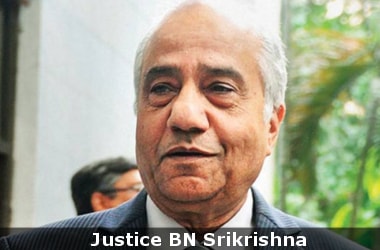 The government has accorded importance to data protection and keeping personal data of citizens secure and protected. The government has accorded importance to data protection and keeping personal data of citizens secure and protected.
Ministry of Electronics and Information Technology (MeitY), Government of India has, on 31st July 2017, constituted a Committee of Experts under the Chairmanship of Justice B N Srikrishna, Former Judge, Supreme Court of India.
The committee is also comprising of members from Government, Academia and Industry to study and identify key data protection issues and recommend methods for addressing them.
The committee will also suggest a draft Data Protection Bill. Protection of Data is expected to provide big boost to Digital economy of the country.
|
▼ Swachhata Ki Jyot Jagi Hai: New anthem for cleanliness and sanitation [08-1-17]
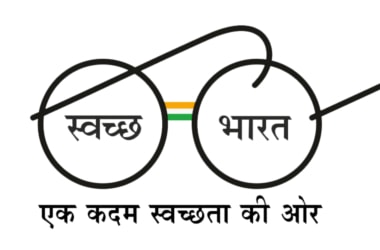 To further inspire the people to participate in the Swachhata Jan Andolan and connect themselves with the ‘Swachhata Survekshan-2018’ launched today, Ministry of Housing & Urban Affairs released a song. To further inspire the people to participate in the Swachhata Jan Andolan and connect themselves with the ‘Swachhata Survekshan-2018’ launched today, Ministry of Housing & Urban Affairs released a song.
Its opening line is ‘Swachhata Ki Jyot Jagi Hai’.(The flame of sanitation has been lit).
This song to be used as the anthem for the survey has been released by Shri Babul Supriyo, Minister of State for Heavy Industries and Public Enterprises.
The song conceived by Shri Supriyo has been scripted by renowned lyricist Shri Prasoon Joshi and visualized free for the ministry by Producer Shri Mukesh Bhatt.
Shri Shankar Mahadevan provided the music.
To be extensively used from today on various platforms including social media to connect the people with the sanitation survey, this song has been rendered by an accomplished team of Shri Babul Supriyo, Shri Udit Narayan, Ms.Shreya Ghoshal, Ms.Alka Yagnik, Akriti Kakar and Shann Banerjee, to the chorus of children.
The song also has messages of Shri Amitabh Bachhan and Shri Sachin Tendulkar.
The song will be dubbed into regional languages for wider outreach.
|
▼ Mahila Coir Yojana to empower women in coir industry [08-1-17]
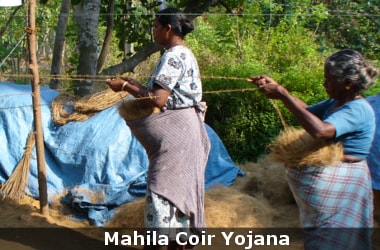 The Coir Board is implementing Mahila Coir Yojana(MCY) exclusively for empowering women in the country by giving training and distribution of coir processing equipments. The Coir Board is implementing Mahila Coir Yojana(MCY) exclusively for empowering women in the country by giving training and distribution of coir processing equipments.
This is a 100% women oriented programme intended to provide self employment to the rural women artisans in coir producing regions.
The scheme envisages distribution of motorized ratts/motorized traditional ratts and other coir processing equipments, which can be operated by women, at 75% subsidy after imparting training with a duration of 2 months subject to a maximum amount of INR 7,500/-.
The training under MCY are conducted through all training centres of the Board.
During the training period, the women artisans are given stipend amounting to Rs.1000 per month.
The scheme is prevalent in coir producing coastal States such as Kerala, Tamil Nadu, Karnataka, Andhra Pradesh, Telangana, Odisha, Lakshadweep, Maharashtra, Gujarat, Goa, Pondicherry, A& N Islands, West Bengal and NE Region.
During the current year the targets of 1000 women for training and 200 ratts/equipments for distribution to the trained women have been fixed under MCY and an amount of INR 35.00 lakhs have been allocated for the current year.
Coir Board has received 97 applications under the Scheme and all the applications are from Kerala only.
|